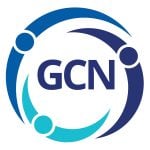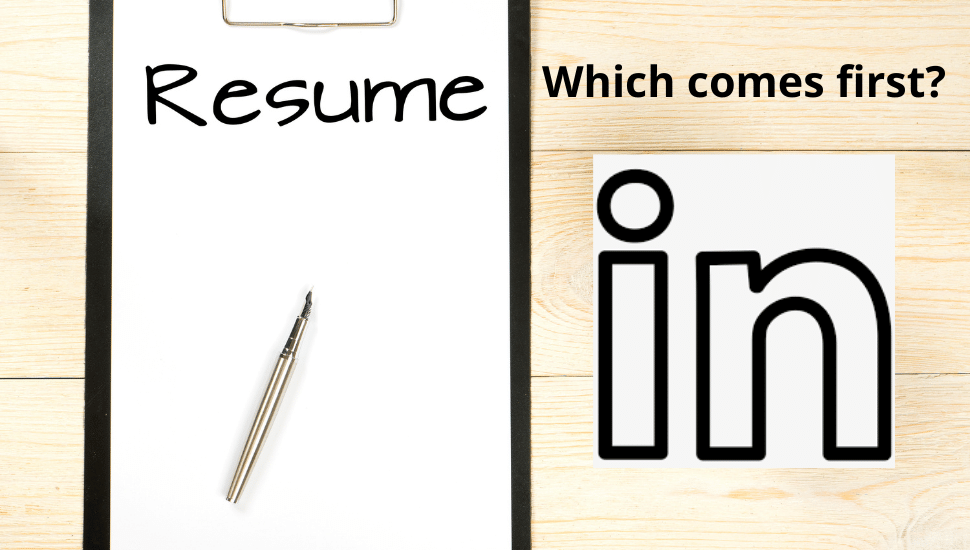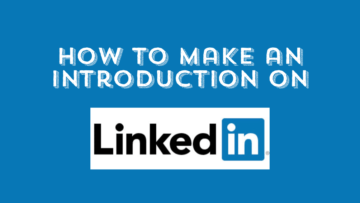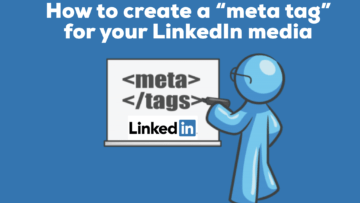Which comes first – the resume or LinkedIn? It’s like asking about the chicken and the egg and may differ who you ask. So the answer is … it depends!
Since this is what I do to make a living, my answer is THE CONTENT! Whether you type the content in a Google doc, Word doc, a resume template, or a LinkedIn profile, they all need content.
When updating content, why not get that content formatted in a resume? Even entrepreneurs and small businesses may need bank loans, and I have had clients who needed a resume to apply for lines of credit.
As a job seeker, you certainly need a resume, and you must keep up with the trends of current resume styles. If you are using objectives and references available upon request, you are out of touch, as those resume sections have not been used for well over a decade.
Everything in the article Should Your Resume & LinkedIn be Matchy-Matchy? still holds true for me, except for a couple of changes by LinkedIn. The headline used to be 120 characters and is now 220 characters. The About Section used to be called the Summary Section.
Maybe you have heard that content is king! Then keywords are the Ace!
Keywords in a job description must match those in a resume, so customize each resume from a base resume.
LinkedIn is a database, and keywords are essential in each profile to be found. When you build your profile, you have to think like Google. What would people type into Google to find a person like you?
As a job seeker, you want to be found on LinkedIn for your future-forward position, whether you maintain the same career in the same industry or are pivoting to your reinvention. The keywords and positioning have to reflect where you are going in your next opportunity.
As an entrepreneur, keywords are essential to be found. If your business name is Woody’s Web Services and you are the CEO, people won’t be typing Woody’s Web Services CEO into Google. They will probably type website developer in West Chester. Therefore, your title and company name should not go into your headline, but what you do, what problem you solve, and who you solve it for may be the most appropriate words to use.
How do you find keywords? There are several methods you can use as described in these articles. It’s also good to check and see what is happening on Google Trends and compare keywords you are considering.
So let’s say you decide you are going to start writing content in a resume template? What sections should that template have? Although there are many possibilities, here is what I typically use:
- Name, City, ST, phone, email, LinkedIn URL
- Headline
- Positioning statement or value proposition written in first person implied I
- Core Competencies (aka skills that are keywords)
- Career Highlights
- Work Experience
- Education & Certifications
- Professional Organizations
- Volunteer
Stay tuned for more resume tips!
AUTHOR BIO
Lynne Williams is the Executive Director of the Philadelphia Area Great Careers Group, a 501(c)3 nonprofit, that provides career education and networking. Lynne also writes for vista.today, montco.today, delco.today and bucksco.today




